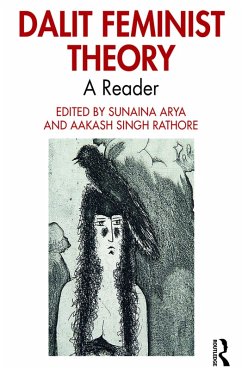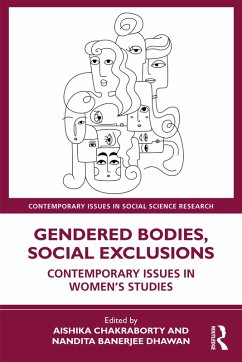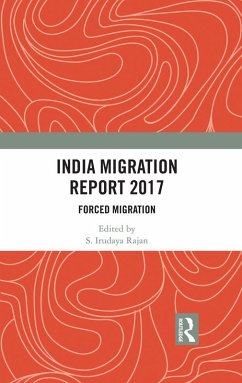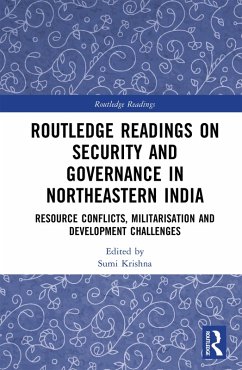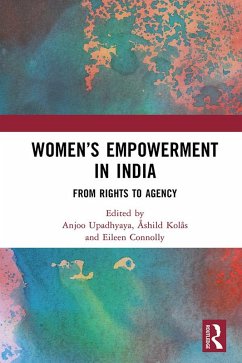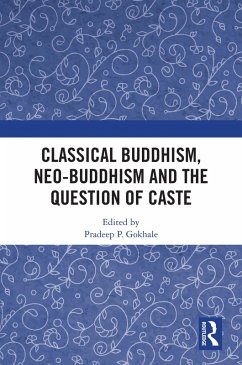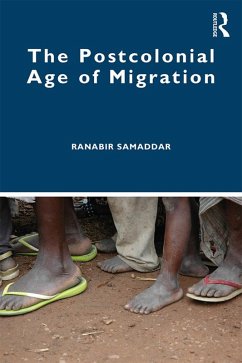
Dalit Feminist Theory (eBook, PDF)
A Reader
Redaktion: Arya, Sunaina; Rathore, Aakash Singh
Versandkostenfrei!
Sofort per Download lieferbar
42,95 €
inkl. MwSt.
Weitere Ausgaben:

PAYBACK Punkte
21 °P sammeln!
Dalit Feminist Theory: A Reader radically redefines feminism by introducing the category of Dalit into the core of feminist thought. It supplements feminism by adding caste to its study and praxis; it also re-examines and rethinks Indian feminism by replacing it with a new paradigm, namely, that caste-based feminist inquiry offers the only theoretical vantage point for comprehensively addressing gender-based injustices.Drawing on a variety of disciplines, the chapters in the volume discuss key themes such as Indian feminism versus Dalit feminism; the emerging concept of Dalit patriarchy; the p...
Dalit Feminist Theory: A Reader radically redefines feminism by introducing the category of Dalit into the core of feminist thought. It supplements feminism by adding caste to its study and praxis; it also re-examines and rethinks Indian feminism by replacing it with a new paradigm, namely, that caste-based feminist inquiry offers the only theoretical vantage point for comprehensively addressing gender-based injustices.
Drawing on a variety of disciplines, the chapters in the volume discuss key themes such as Indian feminism versus Dalit feminism; the emerging concept of Dalit patriarchy; the predecessors of Dalit feminism, such as Phule and Ambedkar; the meaning and value of lived experience; the concept of Difference; the analogical relationship between Black feminism and Dalit feminism; the intersectionality debate; and the theory-versus-experience debate. They also provide a conceptual, historical, empirical and philosophical understanding of feminism in India today.
Accessible, essential and ingenious in its approach, this book is for students, teachers and specialist scholars, as well as activists and the interested general reader. It will be indispensable for those engaged in gender studies, women's studies, sociology of caste, political science and political theory, philosophy and feminism, Ambedkar studies, and for anyone working in the areas of caste, class or gender-based discrimination, exclusion and inequality.
Drawing on a variety of disciplines, the chapters in the volume discuss key themes such as Indian feminism versus Dalit feminism; the emerging concept of Dalit patriarchy; the predecessors of Dalit feminism, such as Phule and Ambedkar; the meaning and value of lived experience; the concept of Difference; the analogical relationship between Black feminism and Dalit feminism; the intersectionality debate; and the theory-versus-experience debate. They also provide a conceptual, historical, empirical and philosophical understanding of feminism in India today.
Accessible, essential and ingenious in its approach, this book is for students, teachers and specialist scholars, as well as activists and the interested general reader. It will be indispensable for those engaged in gender studies, women's studies, sociology of caste, political science and political theory, philosophy and feminism, Ambedkar studies, and for anyone working in the areas of caste, class or gender-based discrimination, exclusion and inequality.
Dieser Download kann aus rechtlichen Gründen nur mit Rechnungsadresse in A, B, BG, CY, CZ, D, DK, EW, E, FIN, F, GR, HR, H, IRL, I, LT, L, LR, M, NL, PL, P, R, S, SLO, SK ausgeliefert werden.




